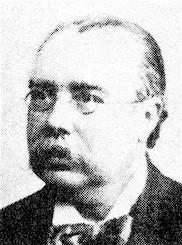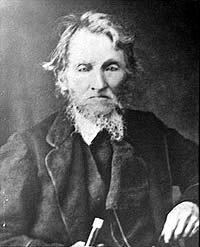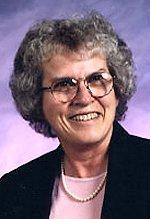Planning worship?
Check out our sister site, ZeteoSearch.org,
for 20+ additional resources related to your search.
- |
User Links
Person Results
John King

1789 - 1858 Author of "When, His Salvation Bringing" in The New Christian Hymnal In H. and J. Gwyther's Psalmist, A Selection. of Psalms & Hymns, etc., Lond., 1830, there is 1 psalm version signed “J. King," and 1 psalm version and 4 hymns signed "I. King." One of the latter is "When His salvation bringing," No. 417, in 3 stanzas of 8 lines, with a chorus. This hymn is in extensive modern use. Concerning the author great, difficulty has been experienced in tracing his identity. Under date of Aug. 15, 1865, the Rev. John Gwyther informed D. Sedgwick that the signatures stood for "Joshua King, late Vicar of Hull."
In a second communication, dated Aug. 19, 1865, be writes further, "Mr. Joshua King was Curate to Mr. J. Eyton, of Wellington, Shropshire, when Mr. E. made his collection of Hymns and wrote them for his Book, but whether he published them in any other form I don't know. Mr. K. gave his Hymn Book to my brother." From the Registers of Eyton Church we find that Mr. King's name was John. He graduated at Queen's College, Cambridge, B.A. 1814; became Incumbent of Christ Church, Hull, in 1822, and died Sep. 12, 1858, aged 69.
--John Julian, Dictionary of Hymnology, Appendix, Part II (1907)
See also Joshua King.
John King
Lorenzo Lyons

1807 - 1886 Person Name: Laiana (Lorenzo Lyons), 1807-1886 Translator of "KE WEHE NEI KE ALAULA" in Na Himeni Haipule Hawaii Lorenzo Lyons also known as Makua Laiana, missionary to Hawaii.
Dianne Shapiro
Lorenzo Lyons
Charles Frischmann
Person Name: Charles G. Frischmann Harmonizer of "WEBB" in One in Faith
Charles Frischmann
Joy F. Patterson

b. 1931 Author of "You Call to Us, Lord Jesus" in Hymns and Devotions for Daily Worship Joy F. Patterson (b. 1931), of Wassau, Wisconsin, is an elder in the Presbyterian Church who has written many texts and tunes; twenty-nine are collected in Come, You People of the Promise (Hope Publishing, Co., 1994); another collection, Teach Our Eyes New Ways of Seeing, was published in 2005 (Selah). Patterson has enjoyed a varied career as a French professor, homemaker, and claim representative for the Social Security Administration.
Sing! A New Creation
Joy F. Patterson
Laurentius Laurenti
1660 - 1722 Person Name: Laurenti Author of "Rejoice, rejoice, believers!" in Worship in the School Room Laurenti, Laurentius, son of Herr Lorenz, or Laurenti, a burgess of Husum, in Schleswig, was born at Husum, June 8, 1660. He entered the University of Rostock in 1681, and after a year and a half spent there, went to Kiel to study music. In 1684 he was appointed cantor and director of the music at the cathedral church at Bremen. He died at Bremen, May 29, 1722 (Koch, iv. 281; Rotermund's continuation of Jöcher's Gelehrten-Lexicon, iii. 1405, &c). Laurenti was one of the best hymn-writers of the Pietistic school. His hymns are founded on the Gospels for Sundays and Festivals, and they draw out the bearing on the Christian life of the leading thoughts therein contained. They are of noble simplicity; are Scriptural, fervent, and often of genuine poetical worth. In Freylinghausen's Gesang-Buch, 1704 and 1714, no less than 34 are included, and many of these, with others by him, are still in extensive German use. They appeared in his:—
Evangelia Melodica, das ist: Geistliche Lieder,und Lobgesange, nach den Sinn der ordentlichen Sonn-und Festages Evangelien, &c. Bremen, 1700 [Royal Library, Berlin], with 148 hymns on the Gospels, and two others.
Of his hymns those which have passed into English are:——
i. Du wesentliches Wort. Christmas. Founded on St. John i. 1-12. In his Evangelia Melodica, 1700, p. 30, in 8 stanzas of 8 lines, entitled, "For the Third Day of Christmas." Included in Freylinghausen's Gesang-Buch, 1704, No. 20; and, recently, as No. 83, in the Berlin Geistliche Lieder, 1863. The translations in common use are:—
1. 0 Thou essential Word, Who from. A good translation, omitting st. iii., v., by Miss Winkworth, in her Lyra Germanica, first Ser., 1855, p. 15 (2nd edition, 1856, considerably altered); and repeated, abridged, in Flett's Collection, Paisley, 1871. Varying centos, beginning with st. i., 1. 5, altered to "O Saviour of our race," are found in America, as in Boardman's Selections, Philadelphia, 1861; the Pennsylvania Lutheran Church Book, 1868; and the Dutch Ref. Hymns of the Church, 1869.
2. 0 Thou essential Word, Who wast. By Miss Winkworth, in her Chorale Book for England, 1863, No. 54. This is her 1856 version (as above) rewritten to the original metre. Repeated, in full, in Dr. Thomas's Augustine Hymn Book, 1866, and the Ohio Lutheran Hymnal, 1880; and, abridged, in the English Presbyterian Psalms & Hymns, 1867, and Laudes Domini, N. Y., 1884.
ii. Ermuntert euch, ihr Frommen. Second Advent. This is his finest hymn. In his Evangelia Melodica, 1700, p. 353, in 10 stanzas of 8 lines, entitled, "For the 27th Sunday after Trinity." It is founded on St. Matt. xxv. 1-13; and unites the imagery of the parable of the Ten Virgins with that of Rev. xx., xxi. Included, as No. 578, in Freylinghausen's Gesang-Buch, 1704; and, recently, as No. 1519, in the Berlin Geistliche Lieder, ed. 1863. The translation in common use is:—
Rejoice, all ye believers. By Mrs. Findlater, in Hymns from the Land of Luther, 1st Ser., 1854, p. 61 (1884, p. 62), a good translation of st. i.-iii., vii., viii., x. In full, but altered to the original metre, in Schaff’s Christ in Song, 1869 and 1870. This version is found in a large number of English and American hymnals, under the following forms:—
(1) Rejoice, all ye believers (st. i.). Varying centos are found in Mercer, 1864, Hymnal Companion, 1876, &c.; and in America in Hatfield's Church Hymn Book, 1872, Evangelical Hymnal, N. Y., 1880, and others.
(2)
Laurentius Laurenti
Benjamin Gough
1805 - 1877 Author of "How beauteous on the mountains" in Sacred Hymns and Tunes Gough, Benjamin, was born at Southborough, Kent, in 1805, and died Nov. 28,1877. He was engaged in mercantile pursuits in London for some years. After retiring from business he resided at Mountfield, Faversham. He was a member and lay preacher of the Wesleyan denomination. His poetical works include:—
(1) Lyra Sabbatica, Lon., 1865; (2) Kentish Lyrics, London, 1867; (3) Hymns of Prayer and Praise, London, 1875; and several minor publications, the most important being (4) Protestant Hymns & Songs for the Million, Lon., 1878; (5) Songs from the Woodlands, and Other Poems, Lon., 1872; and (6) Christmas Carols and New Year's Songs, Lon. (n.d.).
Of Mr. Gough's hymns, about 20 are in common use in Great Britain and America, and of these the most popular and widely used is "Awake, awake, O Zion," q.v. Although possessing many features of popularity, his hymns do not rank high as literary productions. His works are also marred by numerous and feeble imitations of the great lyrics of the Church. Many of his earlier hymns were rewritten for his Hymns of Prayer & Praise, very much to their disadvantage. In addition to those which are annotated under their first lines the following are in common use:—
1. Be thou faithful unto death. Faithfulness. Appeared in his Lyra Sabbatica, &c, 1865, p. 77, in 3 stanzas of 8 lines, and entitled "Christian Fidelity." In 1867 it was transferred to the People's Hymnal, and again, in 1875, to the New Mitre-Hymnal, No. 151.
2. Blessed are the dead who die. Burial. Appeared in his Lyra Sabbatica, 1865, p. 89, in 4 stanzas of 8 lines and headed "For the dead in Christ." In Hatfield's Church Hymn Book, N. Y., 1872, it is slightly altered.
3. Christ is risen from the dead. Easter. In Lyra Sabbatica, 1865, p. 96, in 6 stanzas of 8 lines, as "An Easter Carol;" but in his Hymns of Prayer & Praise, 1875, p. 49, this is changed to "An Easter Hymn." In the New Mitre-Hymnal, 1875, stanzas iv., v. are omitted.
4. Come, children, and join with ardour divine. Missions. In his Lyra Sabbatica, 1865, p. 159, in 9 stanzas of 3 lines, and entitled, "Children's Missionary Hymn" and the Hymns of Prayer & Praise, 1875, No. 39, in 4 stanzas of 6 lines. In the latter work it is rewritten, very much to its disadvantage. The 1865 text is followed in the Methodist Sunday School Hymn Book, 1879, No. 562.
5. Come to Bethlehem and see. Christmas. Appeared in his Christmas Carols, &c, n.d., p. 21, in 5 stanzas of 8 lines. In the New Mitre-Hymnal, 1875, No. 26, it is dated 1873.
6. For all the [Thy] saints in heaven and earth. All Saints. From his Lyra Sabbatica, 1865, p. 119, in stanzas of 8 lines into Snepp's Songs of Grace & Glory, 1872, No. 148.
7. God the Father, full of grace. Holy Trinity, or Public Worship. Appeared in his Kentish Lyrics, 1867, p. 97, in 4 stanzas of 6 lines; and rewritten in a far less acceptable form, in his Hymns of Prayer & Praise, 1875, p. 80, in 4 stanzas of 6 lines. No. 8 in the Methodist Sunday School Hymn Book, 1879, is from the 1867 text.
8. Ho, every one that thirsteth. Invitation. Published in his Lyra Sabbatica, 1865, p. 83, in 5 stanzas of 8 lines; and, altered to its disadvantage, in his Hymns of Prayer & Praise. 1875, p. 33, in 5 stanzas of 8 lines. No. 291 in Methodist Sunday School Hymn Book, 1879 is from the 1865 text.
9. How beauteous on the mountains. Missions. In Lyra Sabbatica, 1865, p. 23, in 5 stanzas of 8 lines; and his Hymns of Prayer & Praise, 1875, p. 20. In Hatfield's Church Hymn Book, N. Y., 1872, No. 1246, is composed of stanzas i.-iii.
10. In Thy temple we adore Thee, gentle, pure, and holy Child. Christmas. In his Christmas Carols, &c, n.d., p. 39, in 3 stanzas of 4 double lines. In the New Mitre-Hymnal, 1875, No. 30, it is dated 1873, and begins, “In Thy cradle we adore Thee."
11. Jesus, full of love divine. Love of Jesus. Written in 1874, and published in the New Mitre-Hymnal, 1875, No. 84.
12. Lift the gospel banner. Missions. This is attributed to B. Gough, on the authority of Mrs. Gough. It is not in his published works, and its first appearance is unknown. In the Methodist Sunday School Hymn Book, 1879, No. 394, it is in 4 stanzas of 8 lines.
13. 0 Jesus, behold the lambs of Thy fold. Sunday. From his Lyra Sabbatica, 1865, p. 103, in 9 stanzas of 3 lines into the Methodist Sunday School Hymn Book, 1879, No. 511, with the omission of stanza ii.
14. Quicken, Lord, Thy Church and me. Whitsuntide. Appeared in his Lyra Sabbatica, 1865, p. 16, in 6 stanzas of 6 lines; and in his Hymns of Prayer & Praise, 1875, p. 6; and headed "For another Pentecost." It is No. 363, in Snepp's Songs of Grace & Glory, 1872.
15. Sing we merrily to God. Praise. Appeared in his Lyra Sabbatica, 1865, p. 65, in 5 stanzas of 8 lines, and his Hymns of Prayer & Praise, 1875, p. 27. In the New Mitre-Hymnal, 1875, No. 138, st. iii. is omitted.
16. There is a land of rest. Heaven. From his Lyra Sabbatica, 1865, p. 105, in 4 stanzas of 8 lines into the New Mitre-Hymnal, 1875, No. 155, where it is appointed for St. Mark's Day.
17. There is no condemnation. Peace. In his Lyra Sabbatica, 1865, p. 25, and his Hymns of Prayer & Praise, 1875, p. 22, in 3 stanzas of 8 lines, and headed "No Condemnation." In Snepp's Songs of Grace & Glory, 1872, it is No. 682.
18. Uplift the blood-red banner. Missions. In his Lyra Sabbatica, 1865, p. 155, and his Hymns of Prayer & Praise, 1875, p. 37, in 4 stanzas of 8 lines, and headed “For the Conversion of the World." It is No. 408 in the People's Hymnal, 1867; No. 88 in the New Mitre-Hymnal, 1875, &c.
-- John Julian, Dictionary of Hymnology (1907)
Benjamin Gough
Johannes Mühlmann
1573 - 1613 Person Name: J. Muehlmann Author of "While Yet The Morn Is Breaking" in American Lutheran Hymnal Mühlmann, Johannes, son of Hieronymus Mühlmann or Mühlmann, pastor at Pegau, near Leipzig, was born at Pegau, July 28, 1573. He studied at the Universities of Leipzig (M.A. January, 1597) and Jena, and was then for some time Saturday preacher at St. Thomas's Church in Leipzig. In 1599 he was appointed diaconus of the St. Wenzel Church in Naumburg, and in 1604 pastor at Laucha on the Unstrut. In the end of 1604 he became archidiaconus of the St. Nicholas Church at Leipzig, and, in 1607, was also appointed Professor of Theology in the University, and D.D. in 1612. He died of typhus at Leipzig, Nov. 14, 1613. (Allgemeine Deutsch Biographie, xxii. 483; Goedeke's Grundriss, vol. iii., 1887, p. 151, &c.)
Mühlmann was a staunch upholder of Lutheran orthodoxy, alike against Romanists and Calvinists. He was a great lover of the Psalms; his published sermons, as well as his hymns, are based on them, and almost his last words were Ps. lxiii., 3, "Thy lovingkindness is better than life." Wackernagel v. pp. 443-447, gives five hymns under his name, all of which are found in the Geistliche Psalmen, &c, published at Nürnberg in 1618, by J. Lauer. [The only known copy, in the Royal Library, Berlin, has lost its titlepage.]
Two of Mühlmann's hymns have passed into English, viz.:—
i. Dank sei Gott in der Höhe. Morning. The most popular of his hymns. Appeared 1618 as above, with his initials, and thence in Wackernagel v. p. 444, in 7 st. of 8 1. Also in the Unverfälschter Liedersegen, 1851, No. 443. Translated as:—
While yet the morn is breaking. A good translation of st. i., ii., v., vii. by Miss Winkworth, as No. 163 in her Chorale Book for England, 1863. Repeated in full in the Ohio Lutheran Hymnal, 1880, and abridged in the Marlborough College Hymn Book, 1869.
Another translation "Christ is the vine, we branches are" (st. vii.). By J. Swertner, as No. 438, in the Moravian Hymn Book, 1789 (1849, No. 612).
ii. 0 Lebens-Brünnlein tief und gross. Ps. lxv. Appeared 1618 as above, with his initials, in 9 st. of 9 1., entitled "a hymn from the 65th Psalm." Thence in Wackernagel v. p. 446; also in the Unverfälschter Liedersegen, 1851, No. 426. It is really a hymn on Christ as the Fountain of Life here and in Eternity, and with Ps. lxv. 10 as its motto. Translated as:—
0 spring of Life, so deep, so great. A good translation of st. i., ii., v., vi., ix. by A. T. Russell, as No. 166 in his Psalms & Hymns, 1851. [Rev. James Mearns, M.A.]
--John Julian, Dictionary of Hymnology (1907)
Johannes Mühlmann
G. Linnaeus Banks
1821 - 1881 Author of "I live for those who love me" in The Sunday School Hymnary Banks, George Linnaeus, newspaper editor and verse writer, was born at Birmingham, March 2, 1821, and died in London, May 3, 1881. His hymn, “I live far those who love me” [Work for God], in the Tonic Solfa Reporter, June, 1861, and in Daisies in the Grass, 1865 (the joint work of himself and his wife, Isabella, née Varley), p. 21, entitled "What I live for," and signed G. L. B. It is in various recent hymnals, sometimes as in Worship Song, 1905, beginning "I'd live." [Rev. James Mearns, M.A.]
--John Julian, Dictionary of Hymnology, New Supplement (1907)
G. Linnaeus Banks
Julius Charles Grimmell
1847 - 1921 Person Name: J. C. G. Author of "Voran mit Jesu" in Heils-Lieder, eine Sammlung Geistlicher Lieder für Sonntagsschulen, Jugendvereine Grimmel, Julius Charles. (Marburg, Germany, May 30, 1847--September 1, 1921, Brightwater, New York). Baptist. Attended Rochester Theological Seminary, 1863-1866, 1867, 1868; University of Lewisburgh (Pennsylvania), 1866-1867. Pastorates at Buffalo, N.Y., 1867-1873; First German Baptist Church, 1873-1893, and 1904-1919, Brooklyn, N.Y. General secretary for German Baptist Home Mission work and editor of the German Baptist publications in Cleveland, 1894-1904. Published a collection of hymns for prayer meetings entitled Die Weckstimme (Brooklyn, 1875). Three hymns translated from English to German appeared in Die Glaubensharfe, (Cleveland, Ohio, 1885).
--Paul Hammond, DNAH Archives
Julius Charles Grimmell


 My Starred Hymns
My Starred Hymns

